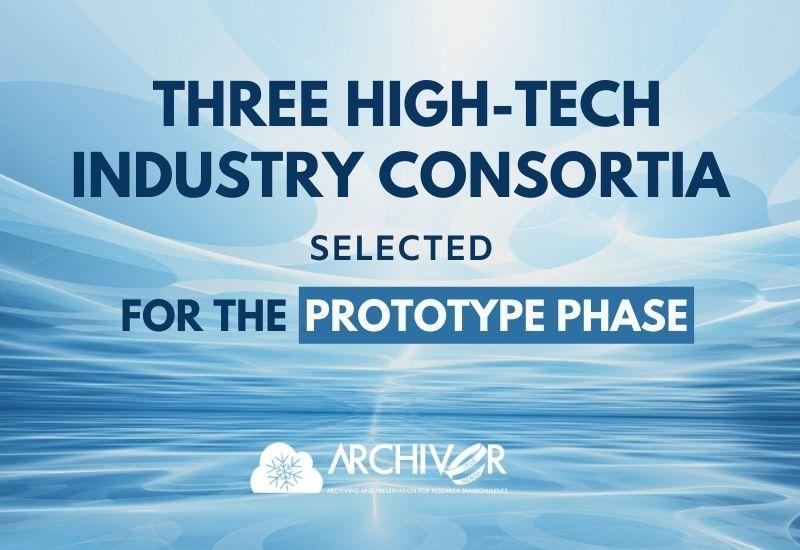- About
- The PCP
- R&D
- Tender
- The Solutions
- Early Adopters
- Events
- News

30 November 2020
Arkivum, LIBNOVA, and T-Systems are the leaders of the three projects selected via the ARCHIVER Pre-commercial Procurement Tender to build prototypes for hybrid cloud end-to-end archival and preservation services for European Research communities.
30 November 2020
Started in January 2019, the ARCHIVER project is one of the Pre-Commercial Procurement (PCP) initiatives funded by the H2020 programme of the European Commission. With a procurement budget of €3.4 million, ARCHIVER will procure innovative, cost-effective R&D solutions, supporting the IT requirements of European research infrastructures that handle data in the petabyte range and with high, sustained ingest rates, in the context of the European Open Science Cloud (EOSC). The second phase of the PCP will officially start on the 7th of December, with the announcement of the three consortia that will enter the prototype phase, led by the high-profile IT companies Arkivum, LIBNOVA, and T-Systems.
Currently, many research projects in the EOSC context cannot enable sustainable use of data beyond the life span of individual data infrastructures, as the archiving and preservation services are inadequate and fall below expectations while data stewardship costs are frequently underestimated during the planning phase. Using the PCP instrument and building on results of recent projects, ARCHIVER’s goal is to fulfil these promises in a multi-disciplinary environment, leveraging best practices, standards and economies of scale.
On the 8th of June, five bids had been selected to produce Designs as a result of the ARCHIVER Pre-Commercial Procurement Request for Tenders for the provision of R&D for hybrid end-to-end archival and preservation service. During the following months the five winner consortia have been working on the technical architecture of their services together with CERN, DESY, EMBL-EBI and PIC, the group of buyers deploying data intensive use cases to assess the solutions for their data management needs.
The three winner consortia
After careful and deep assessment and evaluation, during the Prototype Phase Kick off meeting on the 7th of December the three consortia that have been selected to proceed to the next phase, the Prototype implementation phase, will be officially announced. The consortia awarded will work over the next eight months to build prototypes including all components, making them accessible to the buyers’ group. During this phase basic functionality, scalability interoperability, and security tests will be performed by IT specialists from the buyers’ group, led by EMBL-EBI. The results of these tests will be taken into account in the selection process for proceeding to the Pilot Deployment phase.
The solutions which have been selected for the second phase of the project are the ones developed by the following consortia:
- Arkivum and Google Cloud, which proposed a solution for long-term data management and online access to address the challenges of how cloud hosted services can be used to store, manage, preserve and provide access to petabyte scale datasets.
- LIBNOVA, CSIC, University of Barcelona, Giaretta Associates, AWS and Voxility, providing a Research, Management and Preservation Platform combining existing technologies and new components, to overcome obstacles for research dataset management (including preservation).
- T-Systems International, GWDG and Onedata, which offered an OAIS-compliant data preservation solution, being open, easy-to-use, extendable, cost- and energy-efficient, and building on pre-existing and proven components for data preservation, data and workflow management.
The ceremony
We are expecting a large number of people to attend the virtual Award Ceremony on the 7th of December.
The coordinators of the three consortia will receive via mail the special award designed for the ceremony, together with the notification of a donation done on their behalf to the United Nations Development Programme, supporting their work on the front lines of crisis response and recovery from the COVID-19 pandemic.
The recordings and slides presented during the event will be made available after the ceremony.

